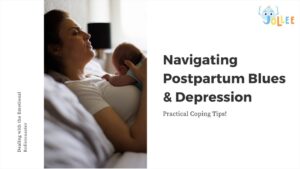The arrival of a new baby is a joyous occasion filled with laughter, celebrations, and happiness. However, behind the scenes, the reality can sometimes be quite different. While postpartum depression in mothers has been well-documented and spoken about, there is still certainly a level of stigma as well as a lack of information about postpartum depression in dads.
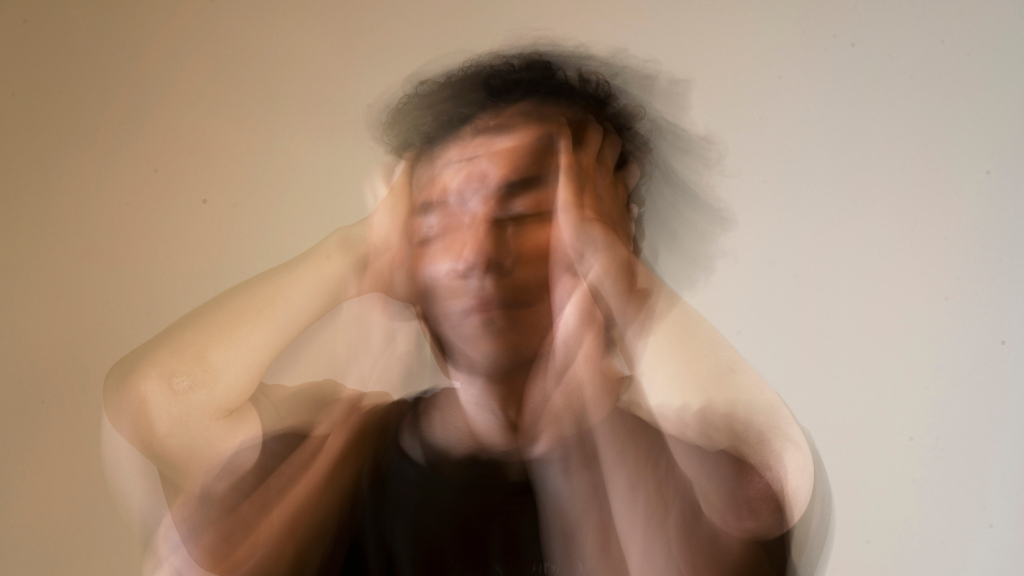
Breaking the silence surrounding this crucial topic is not just necessary; it’s an urgent call for understanding and support. So, let’s delve into the topic exploring its signs, impact, and the importance of fostering an environment where dads feel safe to share their struggles.
What is Postpartum Depression and How does it affect dads?
Imagine a room filled with the echoes of a baby’s first cries, the scent of newborn innocence lingering in the air. Friends and family gathered in happiness. Yet, amid this celebration, a new father stands alone, his smile a facade, concealing the storm of emotions brewing within.
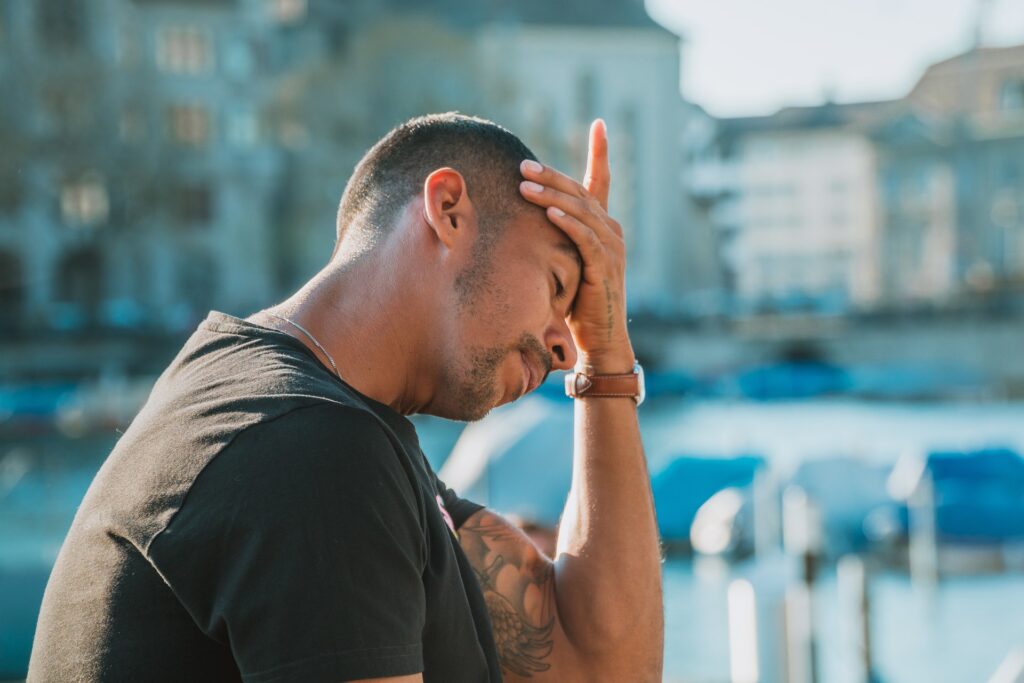
Postpartum depression (PPD) is a form of clinical depression that affects parents following the birth of a child. While it is commonly associated with mothers, fathers can also experience this mental health condition.
Dads grappling with PPD may find it challenging to connect with their newborns, experience changes in sleep patterns, and endure a sense of isolation. The impact of paternal postpartum depression extends beyond the individual, affecting family dynamics and relationships.
Shedding Light on Paternal Postpartum Depression
The societal expectation for fathers to be stoic providers and pillars of strength clashes with the vulnerability that comes with the challenges of new parenthood. It’s crucial to understand that postpartum depression is not exclusive to mothers; it can affect fathers as well.

The Signs We Can’t Afford to Miss
Recognizing postpartum depression in dads involves being attuned to subtle signs that may manifest differently than in mothers.
Mood Swings and Irritability: Sudden shifts in mood and heightened irritability can signal postpartum depression in dads.
Withdrawal and Isolation: A tendency to withdraw from social interactions and isolate oneself
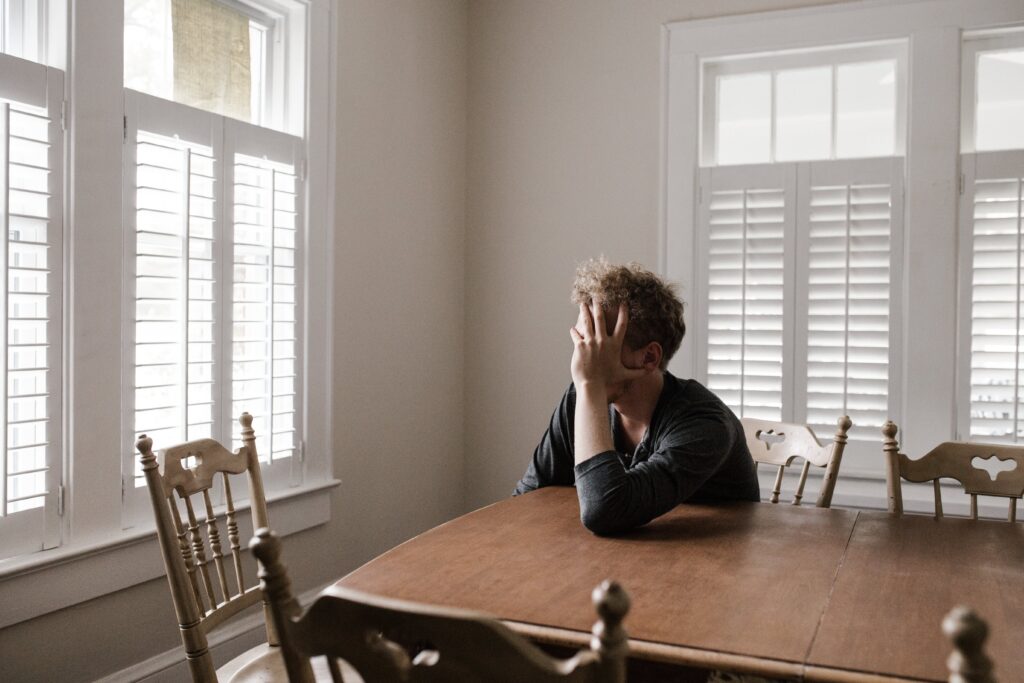
Physical Symptoms: Headaches, digestive issues, and other unexplained physical symptoms can manifest as the body’s response to mental strain.
Changes in Sleep Patterns: Disrupted sleep beyond the norm of new parenthood, either insomnia or excessive sleep, may be indicative of postpartum depression.
Loss of Interest: Diminished enthusiasm or interest in activities previously enjoyed may signify the emotional impact of paternal postpartum depression.
Partners, family members, and friends need to be observant. It helps foster an environment where dads feel comfortable expressing their emotions and seeking professional support when needed.
Why It Matters: Impact of Paternal Postpartum Depression on Families and Relationships
Postpartum depression in dads is not a standalone struggle. It ripples through the family structure, affecting relationships and the overall well-being of everyone involved.
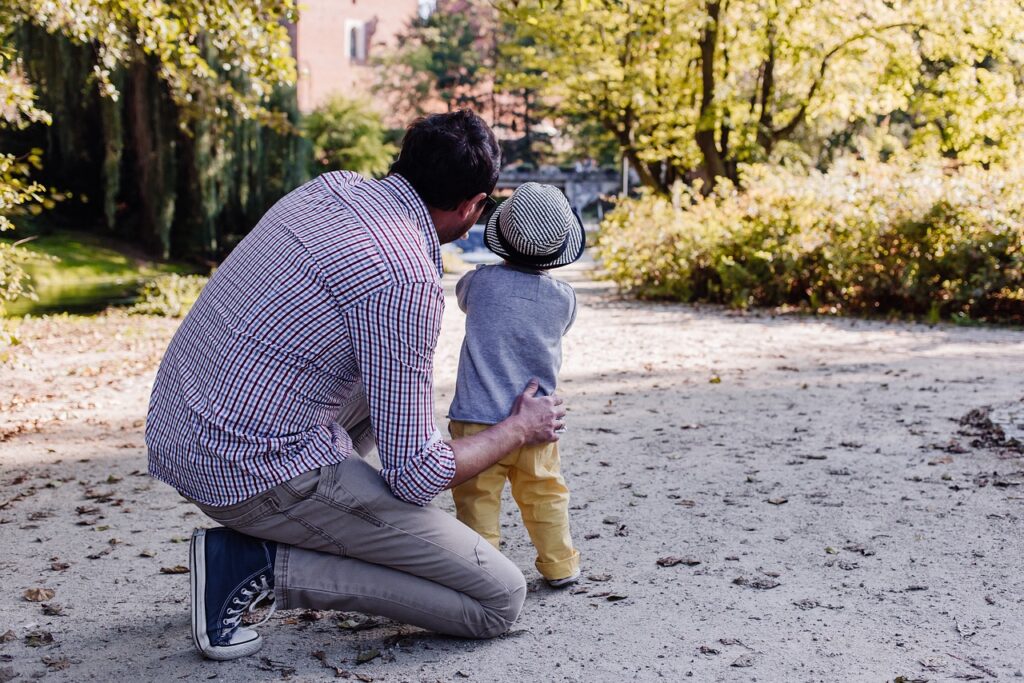
From strained partnerships to a potential impact on the child’s development, addressing paternal postpartum depression is important for the health of the entire family unit.
Destigmatizing Paternal Postpartum Depression

Open Communication: Encourage dads to express their feelings openly and honestly. It is essential to create a safe space for them to share their struggles without judgment.
Seek Professional Help: Furthermore, encourage fathers experiencing postpartum depression to consult with mental health professionals who specialize in paternal mental health.
Involve Dads in Parenting: Facilitate active involvement of fathers in caregiving activities without judgement. It promotes bonding with the baby and fosters a sense of accomplishment.
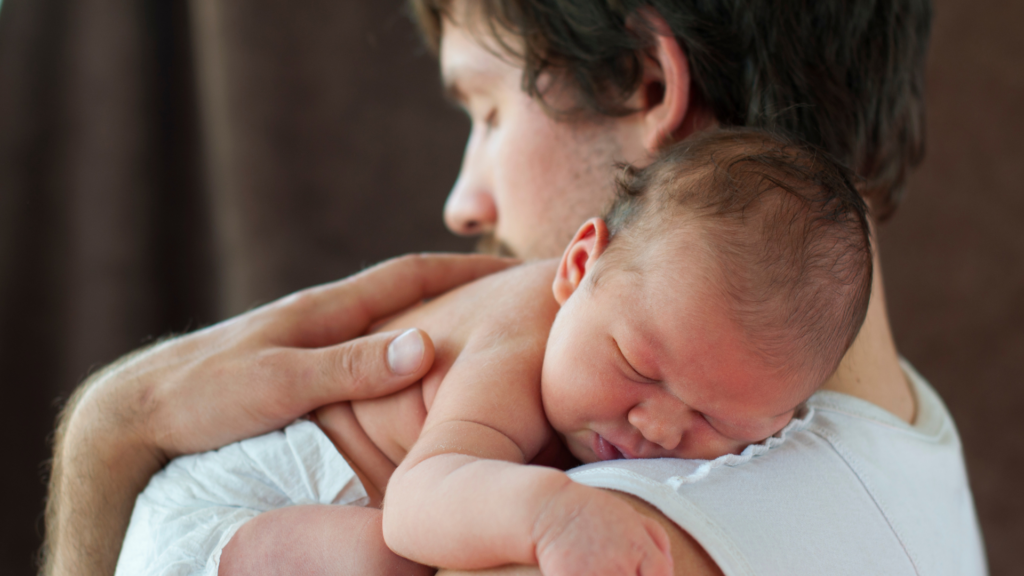
Prioritize Self-Care: Additionally, remind dads to prioritize their own well-being by getting adequate sleep, engaging in physical activity, and allocating time for activities they enjoy.
Build a Support System: Another important point for fathers is to connect with friends, family, or support groups where they can share experiences and receive understanding.

Establish Routine: Help fathers create a daily routine that balances responsibilities.
Mindfulness and Relaxation Techniques: Also introduce mindfulness practices, deep-breathing exercises, or meditation to help fathers manage stress.
Embracing Dads’ Postpartum Mental Health Journey
By acknowledging the challenges fathers face during the postpartum period, we can pave the way for a more inclusive environment.
Let’s celebrate new life while uniting against mental health challenges in parenthood. It’s time to recognize, empathize, and support – breaking the silence for a brighter future.
For more Tips, Check Out: Jollee’s Blog
Discover More Parenting Content on Jollee’s Dad-Corner



